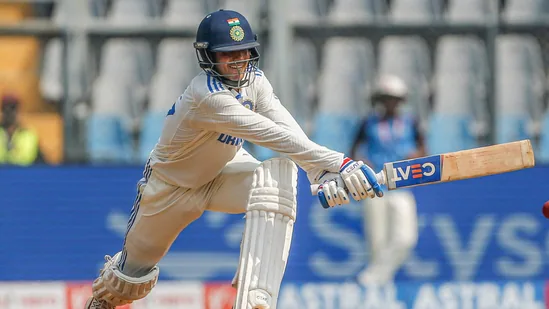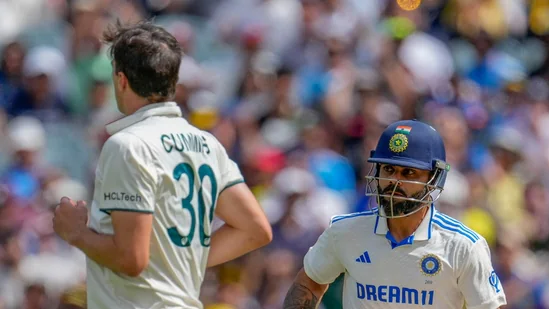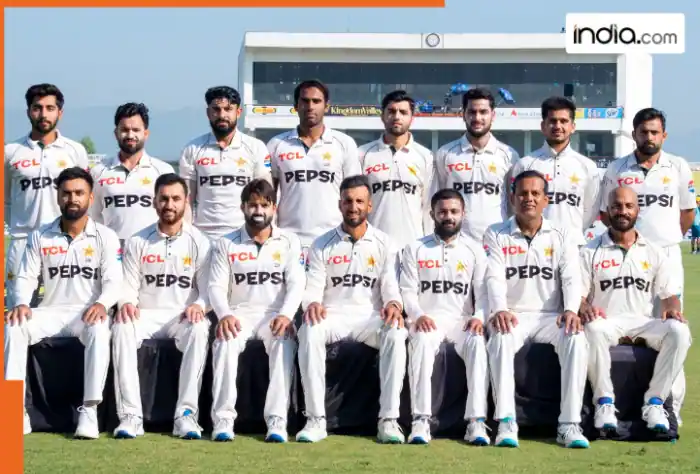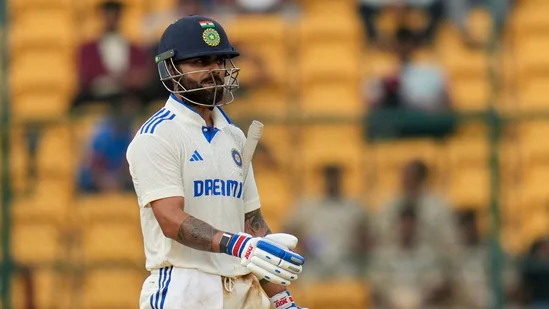From Cricket Rivalry to Artistry: The Transformation of Henry Olonga, Now a Dedicated Jasprit Bumrah Fan
Think of Henry Olonga and you picture flying dreadlocks, raw pace, and sheer athleticism. But what you may not imagine is a paintbrush in his right hand, a vast easel in front of him, a canvas on which he uses deft strokes to conjure magic of a different kind.

Bowling fast, and painting and singing might appear mutually exclusive, but the former Zimbabwe fast bowler has always been a man of many parts. The cricket world, and beyond, will remember him as a rebel with a cause, his rebellion spelling the end of his career – but that was something he well knew when he decided to sport a black armband during the 2003 World Cup in protest against long-term president Robert Mugabe’s dictatorial rule.
Olonga and Andy Flower were united in expressing their protest at Mugabe’s policies; Flower has stayed with cricket in various capacities while Olonga has been reasonably detached from the sport for a decade and more now, having moved to Australia in 2015 after spending more than ten years in England.
Indian fans will remember Olonga with affection. He was always a free spirit, celebrating wickets with gusto but without disrespect, and wearing a bemused, innocent smile when even a good delivery was hit for a boundary, like Sachin Tendulkar did repeatedly in Sharjah in 1998. Two days previously, Tendulkar was taken by surprise by a nasty short delivery that he popped up towards point, dismissed for 11 in a league game Zimbabwe won by 13 runs, defending 205, with Olonga taking four for 46.
Retribution was swift. Legend has it that, before going out to bat in the final 48 hours later with India chasing 197 for the title, the little man said in the dressing room something to the effect of, ‘It’s either him or me today’. It was Tendulkar, 124 not out off 92, 12 fours and six sixes, India winning by ten wickets with 120 deliveries to spare. As for Olonga, well, 6-0-50-0.
“In the final, he went crazy,” Olonga, now a contented 48-year-old, chuckles at Gate 12 of the Village Green inside the Adelaide Oval, where he gets paid by the hour for painting live. “I went for plenty of runs, he smashed it. He was amazing that night. He's a very good player, Sachin, he's got my respect.”
Olonga’s got the respect of the cricket fan, for sure. For his bowling, yes, but also for the principled stance that could have come at a terrible personal cost as he stood up for the ‘death of democracy’ in a country where, he admits, he often felt like a foreigner because in some ways, he was one.
“I was actually a foreigner when I moved to Zimbabwe,” he reflects. “I was born in Zambia, I had a Kenyan father, my (sur)name was different because I have a Kenyan name. I always felt even when I played for Zimbabwe that I was considered an outsider. I was always considered not a genuine homegrown Zimbabwean.”
Journeying back in time, Olonga says, “Look, I stood up for what I believed. It meant the end of my career, but I think there are things that are more important than the game. When I lived in a country with a man who slaughtered so many of his own people, I was like, ‘Nah, we’ve got to say something’. That’s why I did the protest and it had its consequences. Part of that meant I had to leave. I couldn't stay in Zimbabwe with Robert Mugabe not liking me anymore. So, I went overseas and started a new life. But no regrets, no.”
Even though he has just started to reintegrate with cricket through coaching after a long break, he is clearly in touch with the game. He is particularly enthralled by the growth of India’s pace-bowling wealth because, he says, in his time, India was largely about spin.
'Big fan of Bumrah and Siraj': Olonga“I'm a fan of (Mohammed) Siraj and I'm a fan of (Jasprit) Bumrah. Bumrah is the best bowler,” he crows. “Unique action, high release, amazing wrist. And he's even got a bit of hyperextension in his elbow, which gives him a bit more crack. Short run-up, I mean, it's amazing. He reminds me of Wasim (Akram). Remember Wasim on a short run-up? And he's (Bumrah) got perfect control. Beautiful shape, in, out. He can do what his mind thinks to do. If he's on fire, India can always defend low scores.
“When I played, India was known for spin bowlers. But now, you've got a number of bowlers who can bowl over 140 kmph an hour. Some of them are tall as well. India is now a real contender with the ball and the bat. You've got these batsmen who can come in – (Yashasvi) Jaiswal is just amazing, amazing. India is producing a lot of players that want success because it creates wealth, it creates legacy, they can be heroes. Because of that, the standard of Indian cricket is so much higher than it used to be. And they're dominating – close to the top of the (World) Test Championship, they were involved in the last Test Championship (final), they won the T20 World Cup, they were in the finals of the 50-over World Cup. They're everywhere.
“I'm in awe of what Indian cricket has done in the last few years in shifting the power balance of cricket. It used to be England and Australia, that was really it. And then India have now come along and they're eating everyone's lunch because everyone wants to play India and everyone wants to play in India. All the players want to be in the IPL auction and it’s amazing what India's done.”
Stay informed with the...RELATED STORIES
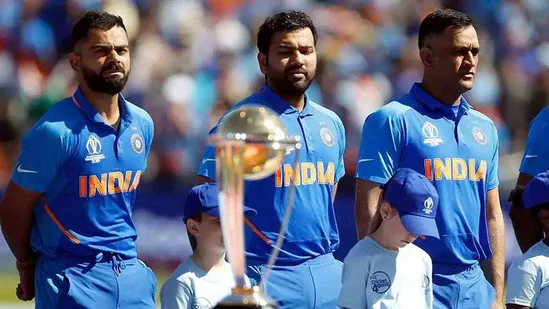
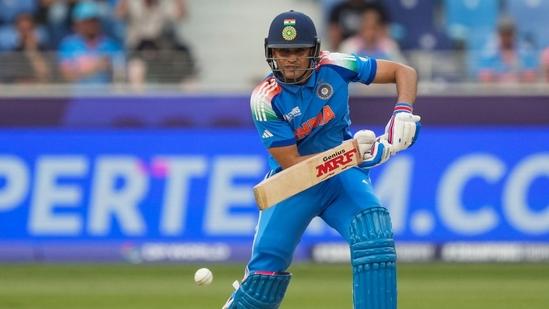
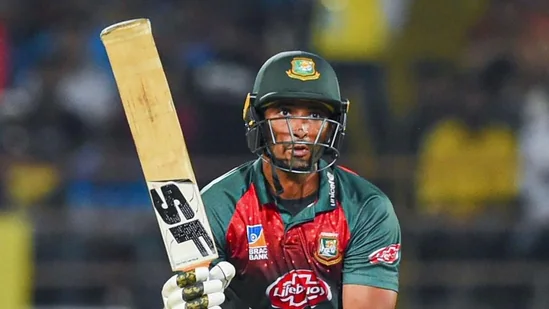
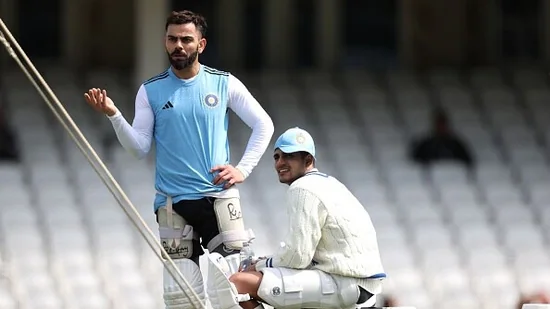
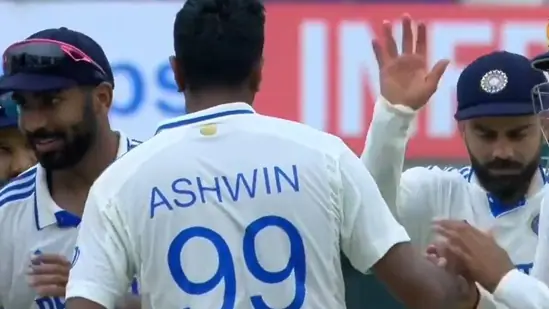
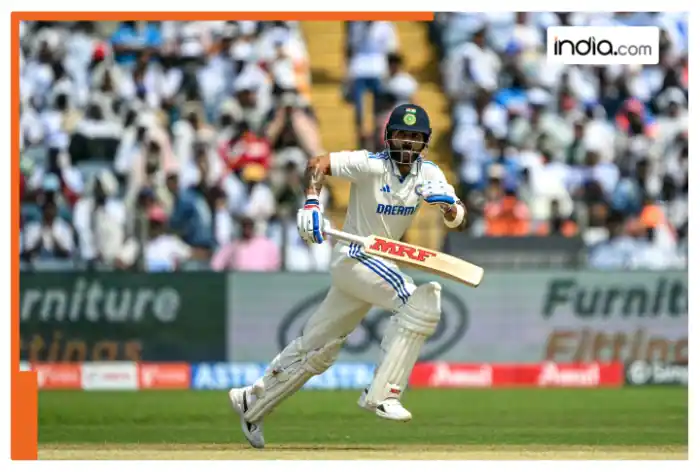
LATEST NEWS

